Brake Power Meter Prototype - Interbike 2016
Matt Miller, a PhD candidate at Massey University in New Zealand, and Dr. Phil Fink, have created a new device that's designed to measure how hard and how often a rider is braking over the course of a ride. Why is this important? Well, think about it – what's the easiest way to go faster? That's right, don't use your brakes. The trouble is, that's easier said than done, especially without being able to figure out exactly where you're braking too much or too little. Miller and the rest of the team working on this project hope that their brake power meter can help make it easier to perfect braking technique, whether that's in order to win on a particular track, or to improve a rider's skills.
Ideally, the data will be able to be displayed in conjunction with helmet cam footage that's gathered at the same time, allowing a rider to see exactly how much power they were applying to the brakes in each section of trail. Imagine pre-riding an enduro or downhill course and then being able to go over the footage later that day to figure out exactly where you could let off the brakes. According to Miller, they've found that braking harder, but less often, leads to faster lap times than more constant, lighter braking, but until now it's been difficult to gather data to prove that theory.
How Does It Work?
The first generation of the brake power meter looks like something that Doc Brown could have dreamed up in Back to the Future, with an almost comically large data collection unit mounted to the handlebars. It's an exercise in “Kiwi ingenuity” as Miller put it, a way to test the concept before worrying about things like weight and appearance. On the prototype the front and rear brake calipers are mounted to brackets that allow the caliper to move slightly during braking in order to determine the torque that's being generated. Taking that torque number and multiplying it by the wheel's velocity allows for the amount of watts being generated to be determined. One obstacle that arose was measuring power when the rear wheel was skidding and no longer turning, but Miller said they should be able to overcome that by developing an equation that factors in the velocity of the front wheel.
During testing, which took place on trail bikes, the highest number measured was 10,000 watts, but Miller expects that they'll find even higher numbers once they start getting elite-level downhill racers on the device.
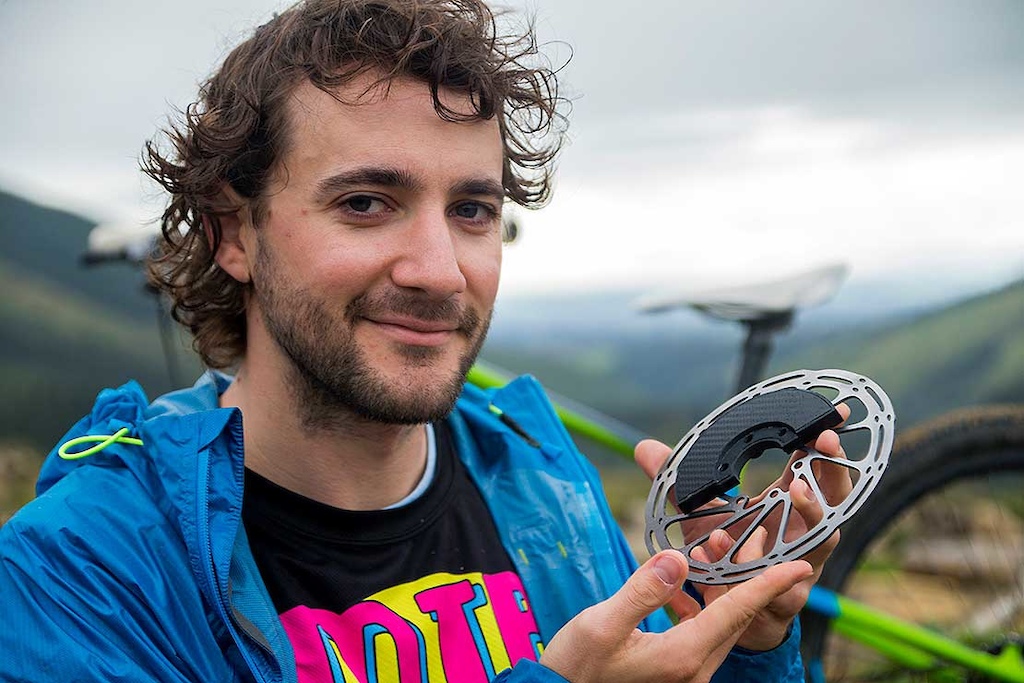
Matt Miller holds version 2.0 of the brake power meter, a much, much sleeker design when compared to that first prototype. Photo: Massey University
Miller also had the second generation of the device on hand, a drastically smaller unit that relies on a strain gauge and an accelerometer encased in carbon fiber and mounted directy to the rotor. The goal is to have the final version available by the middle of next year; a small power meter company called ZWatt will be helping Miller and company with taking the project from the laboratory to the market. No final price has been determined, but it's expected to be in the range of what a typical power meter costs, although the caveat is that two units will be required, one for each wheel.
Author Info:
Must Read This Week
[UPDATED] Final Elite XC Results & Overall Standings from the Mairiporã XC World Cup 2024
42094 views
42094 views
Sign Up for the Pinkbike Newsletter - All the Biggest, Most Interesting Stories in your Inbox
PB Newsletter Signup
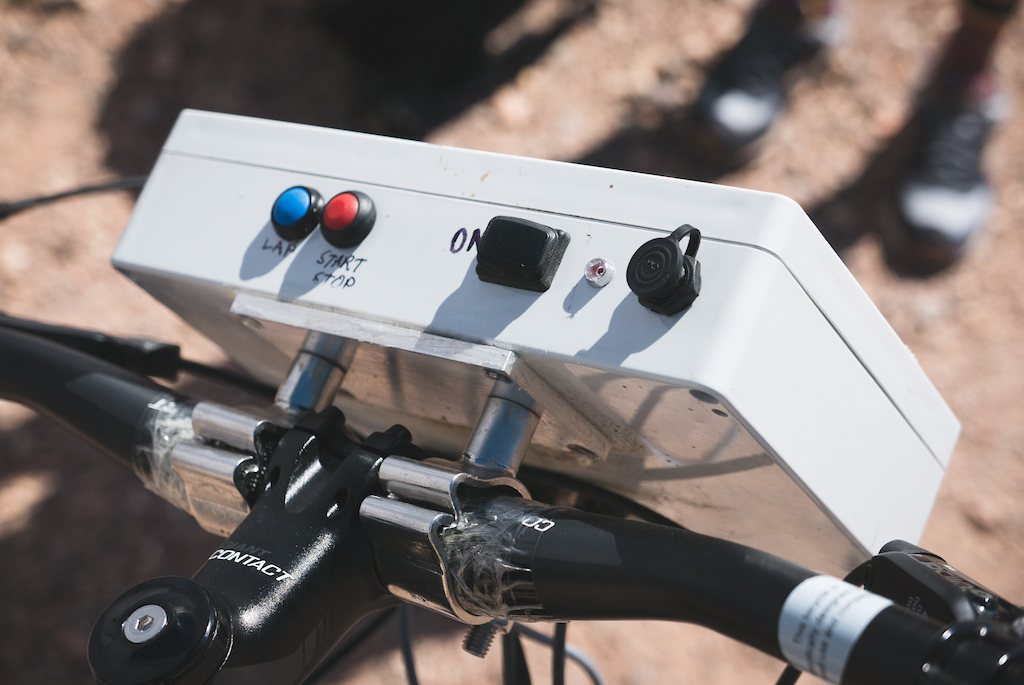
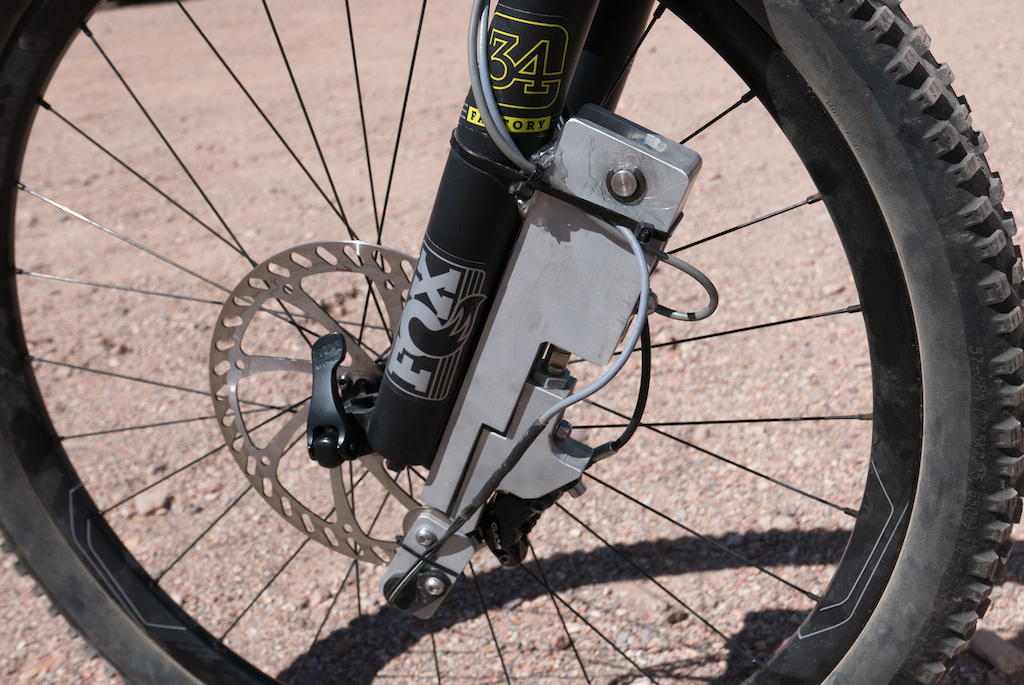
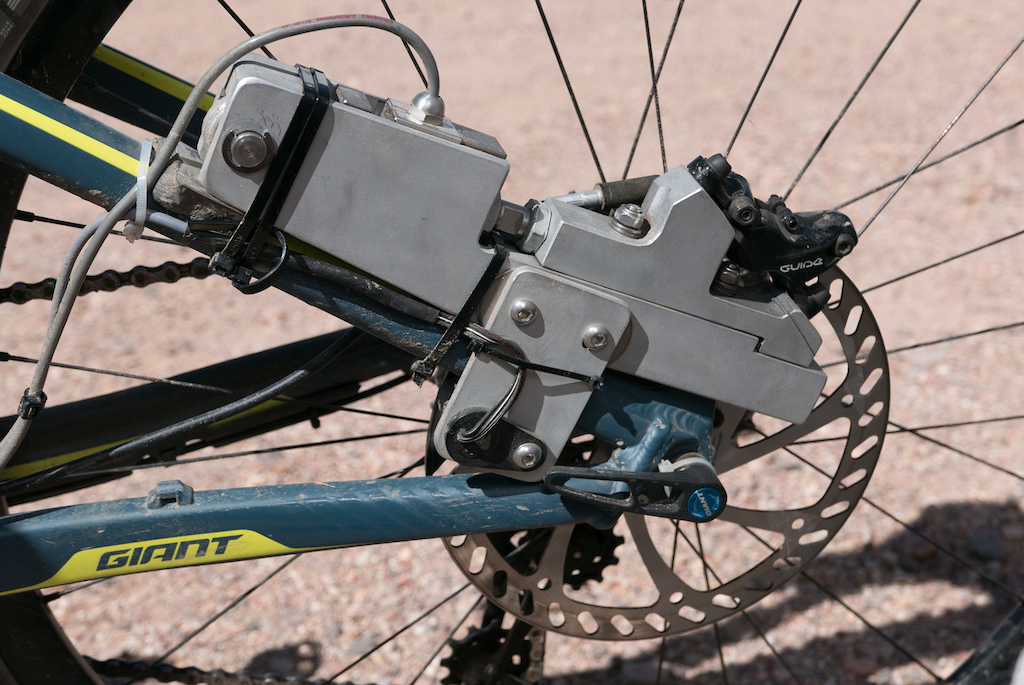
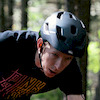
I'll save a lot of people a lot of money. The answer is too hard and too often.
As an aside, in a kart you actually can brake less as the weight shifts forward seeing as most karts only have rear brakes.
It's another hungry mouth to feed
In the ghetto (in the ghetto)
What would be really interesting is to monitor both and see if you can track brake fade as everything heats up.
Three things determine if you'll ride that trail/feature:
1) The most critical, balls/kahunas. Braking comes into play here.
2) Skill. Some braking involved.
3) Bike. Brake quality involved here.
You may have the bike to ride the trail/feature, you may also have the skills, however if you lack balls/kahunas, the previous two don't really matter, and you and your badass bike won't ride that trail/feature.
For example, we know:
(Power) = (Torque) * (Angular Velocity) (1)
We can approximate (Torque) as:
(Torque) = (Brake pressure) * (Piston area) * (Coefficient of Friction) * (Rotor radius) (2)
Then we can plug this equation for torque back into (1) to find power, but then the user needs to know these extra numbers and enter them into a computer or something.
Anyway, I'm done nerding out now.
Right.
Except, energy is also dissipated between the wheel and the ground.
I'd guess that is a significant part of the total, especially for the rear wheel.
However, when you're breaking without locking wheels, I think it's a safe approximation to assume that whatever energy is dissipated between the wheel and the ground is very small relative to the energy dissipated by the brakes.
Anyway, the better metric would be brake force/torque, as the brake power goes to zero when the wheel locks up. Bake power between wheel and ground could only be a rough estimation, as the lateral force and the coefficient of friction is unknown. Of course, one could estimate this from an accelerometer, at which point the whole brake torque measurement becomes redundant.
However, if what you are interested in is simply to help the rider get faster, I think that showing him a trace of the braking pressure would be enough. He could know when he is braking, when he isn't, and how hard. And crucially, he could compare between runs.
That seems like what they're going for here. "One obstacle that arose was measuring power when the rear wheel was skidding and no longer turning, but Miller said they should be able to overcome that by developing an equation that factors in the velocity of the front wheel" - but a rider doesn't care if they're using 5W or 100,000W to make the tyre skid; just the fact that you had too much brake/not enough grip is the important info.
Wouldn't that gen 2 version need to know the orientation and size of the pads? The strain on the rotor at the point of the gauge is going to be a crazy calculatio, as the rotor will not deform uniformly as force is only applied to the part with the pads.
And they have seen 10,000W, well derrrr - that's what happens when you try to slow down the 5000kg of electronics you've strapped on.
Since this is so much funner to think about than my actual homework I retract my earlier question about the purpose of the project.
*my homework is done and I was never here*
Very well may be the understatement of the year!
A big hinderance for me on the trail is braking too much!
But, thats a natural reaction to whats happening, I wonder how possible this is at improving your ride?
Good to know people are testing ideas of new possibilities!
It is already all over motorcycles and breaking into MOTO. I would wager it isn't far off. In-fact AMA has banned wheel speed sensors.
That system isn't all that heavy. Can show difference in front VS rear wheel speed.
I spent the last two weeks in the alp riding huge trails completely on sight. After a while dragging both wheels in front of corners was quite normal, because I was going so quick and some corners were so tight and surprising.
Yes
No
Do I need a big ol box of data acquisition to tell me that
Nope
If for some reason you're needing to know how much brake pressure you're applying, you can buy a modern data acquisition unit and dedicate a channel to it. I might add that the sensor(s) and 'control unit' is about 1/100th of the size of this thing too.
With the looks of that thing, unless he's looking to PHD in ancient electronic equipment, methinks he's not doing too well.